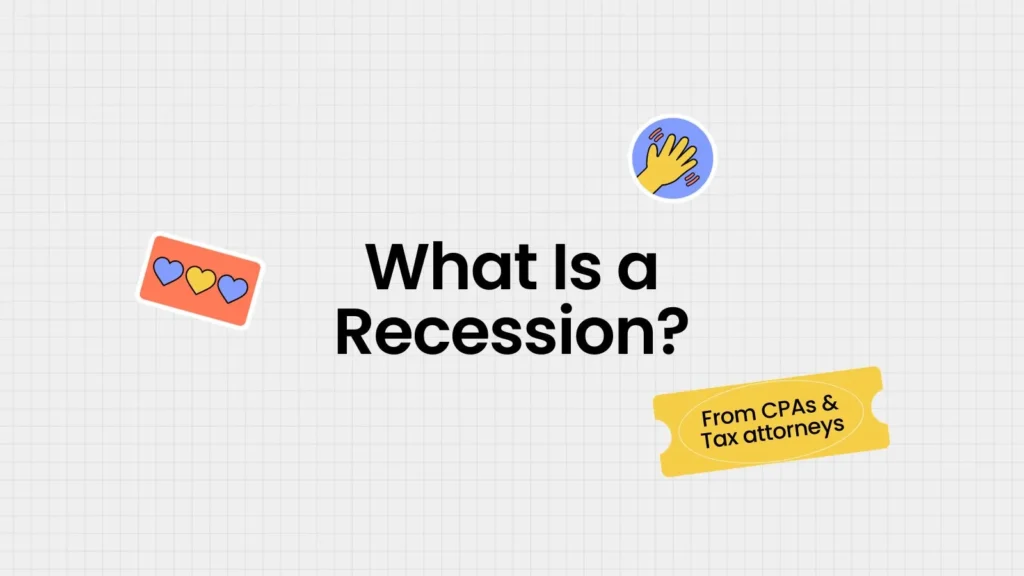The economy is a bit like the weather—sometimes sunny, sometimes stormy. Just like we prepare for a downpour, businesses need to be ready for economic downturns, including the possibility of a recession. But what exactly does “recession” mean, and how can you navigate these choppy waters?
Decoding the “R” Word
A recession isn’t just a few bad days on Wall Street; it’s a prolonged period of economic decline across multiple sectors, officially declared by the National Bureau of Economic Research (NBER) in the U.S. They look at a range of factors, from GDP and employment to industrial production and consumer spending, to make the call. Think of it as a “whole body” economic checkup, not just a quick temperature reading.
A Look Back: Recessions Throughout History
Since the Great Depression, the U.S. economy has weathered 13 recessions. While each one has been unique, they all share a common thread: the economy eventually bounces back. This historical resilience offers a dose of optimism, reminding us that downturns are a natural part of the economic cycle.
The Economic Forecast: October 2024
Right now, the economic picture is a mixed bag. Inflation has cooled down but remains a concern. The job market is strong, but there are signs of slowing growth. Experts debate whether a recession is looming, so it’s wise to stay informed by checking out the latest reports from the NBER, the Federal Reserve, and organizations like the Conference Board.
Batten Down the Hatches: Strategies for Businesses
Whether or not a recession officially hits, smart businesses prepare for economic uncertainty. Here’s your action plan:
Plan for the Unexpected:
- Develop a contingency plan: a roadmap for how your business will adapt if things get tough. This might include adjusting prices, streamlining operations, or exploring new markets.
- Example: During the 2008 recession, a small restaurant chain successfully pivoted by offering affordable family meals and promoting takeout options.
Shore Up Your Finances:
- Maintain a healthy cash reserve: your financial life raft in stormy seas. Consider securing lines of credit or other financing options before you need them.
- Expert Tip: “Cash flow management is crucial during a recession. Businesses with strong cash reserves are better positioned to weather the storm and capitalize on opportunities,” says financial expert John Smith, CRO at Lendflo.
Focus on Your Customers:
- Loyal customers are your lifeline: Double down on customer service, gather feedback, and tailor your offerings to meet their changing needs.
- Resource: Check out this guide on building customer loyalty during economic downturns: Building Resilience: Customer Retention During Economic Downturns.
Trim the Fat:
- Streamline your operations to improve efficiency and reduce costs: Renegotiate contracts, optimize inventory, and invest in technology that boosts productivity.
- Case Study: A manufacturing company implemented lean manufacturing principles during a recession, reducing waste and improving efficiency, which ultimately strengthened their position in the market.
Invest in Your Brand:
- Recessions can be prime times to build brand awareness: While competitors may cut back on marketing, maintain your visibility and reinforce your value proposition.
- Resource: Check out this marketing plan to develop a recession-proof strategy.
Turning Challenges into Opportunities
Recessions aren’t just about survival; they can also be breeding grounds for innovation and growth. Think about offering value-priced options or catering to evolving consumer needs.
- Example: During the dot-com bust, a small software company saw an opportunity to provide affordable web development services to businesses looking to establish an online presence.
Taking Care of Your Most Valuable Asset: Your Team
Remember that recessions can take a toll on employee morale. Foster a supportive work environment, communicate transparently, and prioritize mental health and well-being.
Your Recession Readiness Checklist:
- Review your financial reserves.
- Assess customer feedback and identify potential needs.
- Evaluate your supply chain for vulnerabilities.
- Explore cost-saving measures and operational efficiencies.
- Develop a marketing strategy that reinforces your brand value.
- Prioritize employee communication and support.
Join the Conversation
Share your own experiences and strategies for navigating economic uncertainty in the comments below! Let’s learn from each other and build a community of resilient businesses.
By understanding the dynamics of recessions and taking proactive steps, you can not only weather the storm but emerge stronger and more competitive.
For expert guidance on navigating economic uncertainty and ensuring your business is prepared, contact XOA TAX:
- Website: https://www.xoatax.com/
- Phone: +1 (714) 594-6986
- Email: [email protected]
- Contact Page: https://www.xoatax.com/contact-us/




 anywhere
anywhere  anytime
anytime